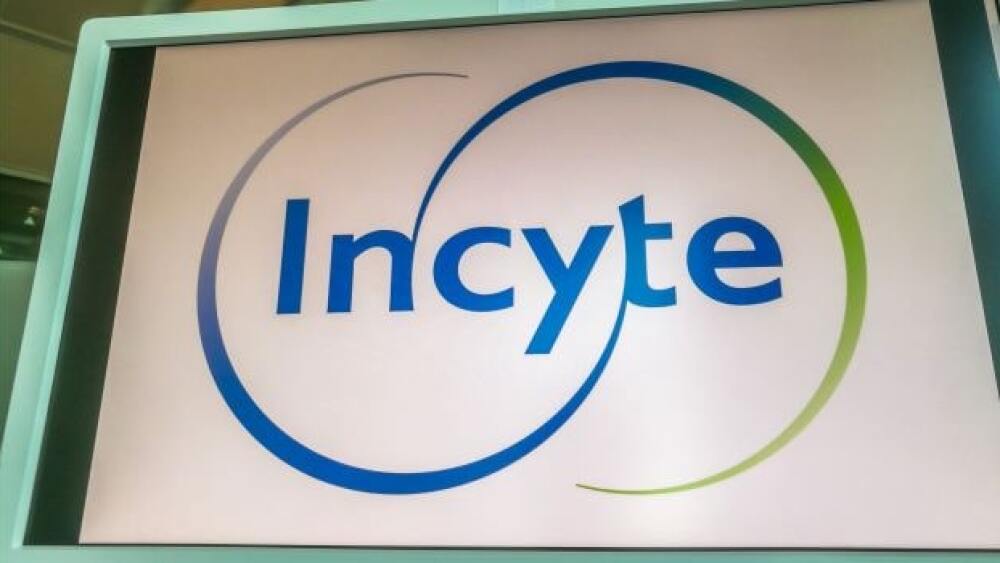The use of ruxolitinib cream, Incyte’s investigational anti-inflammatory JAK inhibitor topical treatment, significantly improved facial vitiligo in adolescents and adults.
Incyte recieved positive results in phase III trials of ruxolitinib. (Eyesonmilan/Shutterstock)
The use of ruxolitinib cream, Incyte’s investigational anti-inflammatory JAK inhibitor topical treatment, significantly improved facial vitiligo in adolescents and adults, according to topline results from two pivotal Phase III clinical trials.
Incyte’s cream contains proprietary ruxolitinib, the company’s selective JAK1/JAK2 inhibitor. The worldwide rights to the cream, which is currently in development in Phase III testing for atopic dermatitis as well as vitiligo, are held by Incyte.
The company’s topical JAK inhibitor therapy was tested in the TRuE-V1 and TRuE-V2, two studies part of Incyte’s Phase III TRuE-V clinical trial program. Each study included up to 300 patients aged 12 years and older who had non-segmental vitiligo and depigmented areas on the face as well as nonfacial areas. Patients were randomly assigned to either 1.5% ruxolitinib cream, applied twice daily, and a vehicle control. The studies ran for 24 weeks in a double-blind period.
Researchers examined whether patients treated with the ruxolitinib cream experienced a ≥75% improvement in the facial vitiligo area scoring index (F-VASI75) from baseline compared with patients who received the vehicle control.
In both studies, patients who received the ruxolitinib cream had a significant ≥75% improvement in the F-VASI75 from baseline (p<0.0001). Both the safety and efficacy profiles of the cream were consistent with those reported in the Phase II study data in April. The investigators observed no new safety signals throughout the late-stage trial.
Jim Lee, M.D., Incyte’s Group Vice President of Inflammation & Autoimmunity, said in a statement that the recent positive Phase III data “confirm the potential of ruxolitinib cream to be a meaningful treatment option for individuals living with and seeking treatment for their vitiligo.”
The company said it is working on submitting marketing applications for the cream to the U.S. Food and Drug Administration and the European Medicines Agency for the indication of adolescent and adult vitiligo. The applications will be submitted sometime in the second half of this year.
Currently, the FDA is reviewing a New Drug Application for the cream for atopic dermatitis in adolescents and adults. The NDA for atopic dermatitis is supported by positive data from the Phase III TRuE-AD clinical program. This trial program enrolled over 1,200 people aged 12 years and older with atopic dermatitis. Patients who received the cream had clinically meaningful reductions in itch by week 8.
Net sales of Jakafi, Incyte’s ruxolitinib therapy approved for steroid-refractory acute graft-versus-host disease, was $466 million the first quarter of 2021. The company said in a statement that this figure reaffirms full-year guidance of between $2.125 billion and $2.2 billion. “We expect an exciting year ahead for Incyte with the potential for multiple approvals, including ruxolitinib cream in atopic dermatitis, and several regulatory filings, notably parsaclisib in NHL and ruxolitinib cream in vitiligo,” said Incyte’s Chief Executive Officer, Hervé Hoppenot, in a statement on the 2021 first quarter financial results.
Hoppenot added the company is also launching pivotal trials for both tafasitamab, the company’s monoclonal antibody currently approved in combination with lenalidomide for relapsed or refractory diffuse large B-cell lymphoma not otherwise specified, and LIMBER sometime this year. Incyte and MorphoSys entered into a strategic collaboration in January 2020 to develop and commercialize tafasitamab globally as Monjuvi.





